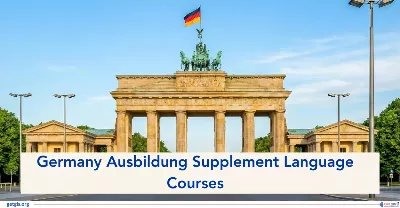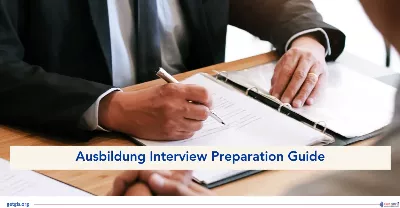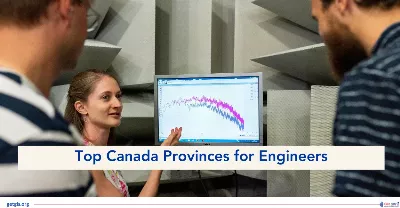What are Fake Visa Scams & How to Avoid Them?
Updated On
-
Copy link
-
-
Fake visa scams often target aspirants seeking better prospects abroad, by offering false job offers or forged documents. With the increasing international mobility it is crucial to recognise these red flags & verify sources before proceeding
Limited-time offer : Access a free 10-Day IELTS study plan curated for you

Table of Contents
Fake visa scams have been on rise globally in recent years with thousands of applicants falling victim to them every other day, for fraudulent agents who promise easy immigration and study abroad opportunities. Last year alone, about 3,500 fake visa scam cases were reported in India, with net losses incurred by the applicants exceeding INR 250 crores (as per official data).
These visa frauds often target aspirants seeking better prospects abroad, by offering fake job offers, forged documents, etc. considering the increasing global mobility in current time it is also crucial to identify these red flags and carefully verify sources before proceeding with any visa application.
What Are Fake Visa Scams?��
Visa scams are prevalent fraudulent activities that target travelers seeking visas for various purposes, including tourism, work, or immigration. Understanding these scams is crucial for safeguarding oneself from financial loss, identity theft, and other adverse consequences.
Let’s delve into the common types of fake visa fraud and provide valuable insights to help you stay vigilant and protected.
Explore the��10 Most Common Work Abroad Scams & Ways To Avoid Them
Types of Fake Visa Scams
Fake visa scams come in various forms, but their goal is always the same: to exploit your desire for a visa and steal your money or personal information. Here are some common types of scams that have been found in recent times.
- Phishing Emails:��These emails appear to be from legitimate organizations like embassies or immigration authorities, requesting your personal details or directing you to fake websites.
- Fake Websites:��These websites mimic official government sites, offering "guaranteed" visas for a hefty fee. Remember, legitimate visas are processed through official government channels only.
- Unsolicited Calls or Messages:��Scammers may impersonate officials, promising quick visas for a price. Beware of such unsolicited offers or pressure schemes.
- Fake Agents or Consultants:��These individuals pose as legitimate immigration consultants, charging exorbitant fees for non-existent services. Only deal with authorized and licensed immigration professionals.
Also, read:��How to Check If Visa is Original or Fake Canada Visa
How to Avoid Fake Visa Scams?
In today's digital age, visa frauds have become increasingly sophisticated, making it essential to stay vigilant and informed. Here are seven tips to help you protect yourself from falling victim to fraudulent visa scams.
|
Technique |
How to Implement? |
|
Do Through Research First |
|
|
Watch Out for Unsolicited Messages or Calls |
|
|
Confirm Website’s Authenticity�� |
|
|
Do not Pay for Visa Application Forms |
|
|
Look for Secure Website Connections |
|
|
Choose Reliable Visa Service Provider |
|
|
Unrealistic Promises are a Big NO |
|
|
Use Only Secure Payment Methods |
|
|
Ensure to Double Check Your Application |
|
Explore the��20 Common Visa Rejection Reasons��for prospective applicants aspiring to immigrate in 2025 - 26
How to Identify Fake Visa Scams?
Visa frauds are designed to deceive individuals into believing they are legitimate visa providers or immigration authorities. Recognizing potential red flags and warning signs can help you identify and avoid falling victim to these scams. Here are seven key indicators to watch out for.
- High-Pressure Tactics:��Scammers often use high-pressure tactics to create a sense of urgency or fear, urging individuals to act quickly to secure their visas or avoid deportation. They may threaten consequences for non-compliance or pressure you into making immediate payments.
- Requests for Advanced Payments:��Beware of requests for upfront payments or fees for visa processing, administrative costs, or expedited services. Legitimate visa processes typically require payments at specific stages of the application process and offer secure payment options.
- Unverified Websites or Emails:��Check the authenticity of websites, email addresses, or social media profiles claiming to represent immigration authorities or visa processing services. Look for official logos, contact information, and website URLs with "https://" and valid security certificates.
- Poor Grammar and Spelling Errors:��Pay attention to the quality of written communication, including emails, letters, or application forms. Scammers often make spelling errors, grammatical mistakes, or use generic language that lacks professionalism and attention to detail.
- Unrealistic Promises:��Be skeptical of promises or guarantees of guaranteed visa approval, job offers, or expedited processing without proper documentation or qualifications. Legitimate visa processes adhere to established regulations and criteria, and outcomes are not guaranteed.
- Lack of Transparency or Documentation:��Demand transparency and documentation throughout the visa application process. Beware of visa providers or agencies that refuse to provide written contracts, receipts, or official documentation outlining the terms and conditions of their services.
Explore:��What Are the Different Types of Visas?
Always Choose Safe Visa Consultants to Avoid Visa Frauds
Fake visa scammers continue to exploit aspiring individuals seeking opportunities abroad. Falling in the trap of these fraudulent practices in lure for easy migration of opportunities only leads to financial losses and emotional distress. Always ensure to rely on official sources and trusted immigration experts like������ÿ�մ�����for visa guidance to ensure a safe and transparent application and immigration process.
Also Read
Limited-time offer : Access a free 10-Day IELTS study plan curated for you

Frequently Asked Questions
What should I do if I suspect a fake visa scam?
Are there government agencies that can help with fake visa scams?
How can I verify the legitimacy of a visa provider?
Can I report fake visa scams anonymously?
What resources are available to educate myself about fake visa scams?
What are the consequences of falling for a fake visa scam?
Are there legitimate ways to obtain visas and immigration services?
What should I do if I suspect I've encountered a fake visa scam?





